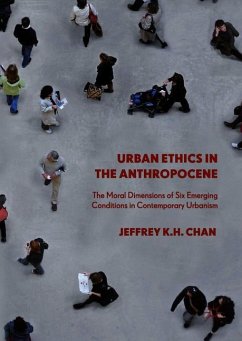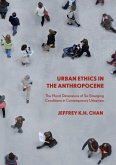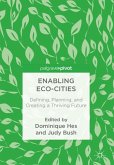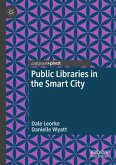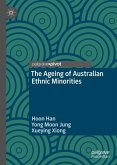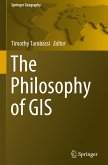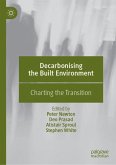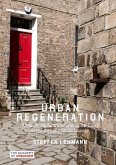Increasingly, we live in an environment of our own making: a 'world as design' over the natural world. For more than half of the global population, this environment is also thoroughly urban. But what does a global urban condition mean for the human condition? How does the design of the city and the urban process, in response to the issues and challenges of the Anthropocene, produce new ethical categories, shape new moral identities and relations, and bring about consequences that are also morally significant? In other words, how does the urban shape the ethical-and in what ways? Conversely, how can ethics reveal relations and realities of the urban that often go unnoticed? This book marks the first systematic study of the city through the ethical perspective in the context of the Anthropocene. Six emergent urban conditions are examined, namely, precarity, propinquity, conflict, serendipity, fear and the urban commons.
Bitte wählen Sie Ihr Anliegen aus.
Rechnungen
Retourenschein anfordern
Bestellstatus
Storno

